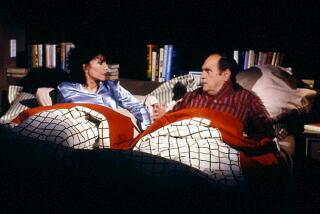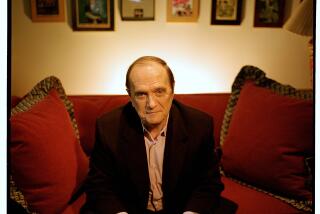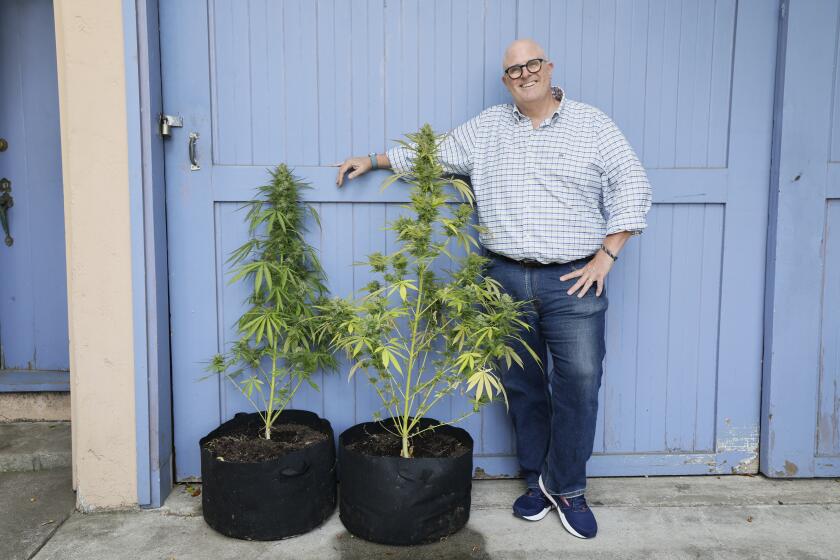‘We Love You, Bob’
Too many neighborhoods are anonymous rows of houses. People drive in and out of the garages and perhaps wave at a familiar face in a passing car, but that’s the extent of their “community.” My neighborhood might have been just that but for the efforts of one older resident, Bob.
Rain or shine, Bob walked the long block and placed everyone’s newspapers, usually thrown in the middle of the street, right at their front doors--no more padding down the drive in slippers and bathrobe hoping not to be seen. He knew if a new car appeared on the street and made inquiries. He was “neighborhood watching” at 3 a.m. when a hit-and-run driver (or so the operator thought) crashed into my parked car. Needless to say, we got the driver. Bob rescued our trash cans from the street, took in our mail, watered our plants and so much more.
Bob didn’t merely do the useful, he did the generous. On our first Christmas in a new house, broke and barely able to celebrate, a miniature tree adorned with tiny wooden ornaments and elf-sized garlands appeared at our front door. After that, at New Years’ a doll proclaiming 1990 was there to greet us; at Fourth of July there were flags. When I returned home from the hospital after having my first child, an “It’s a Girl” bouquet greeted us. How did Bob even know? He made it his business to know and to care.
Now it’s our turn to care. Bob is ill. Because I’m not like him--few are--I didn’t learn just how sick he was until months had lapsed. I took in my own paper and wondered why it wasn’t at the door; I walked my little girl past his door and wondered why he didn’t come out to talk, but I didn’t care enough to find out why.
Now I know why, and the prospect of losing Bob has made me appreciate him as never before. The Bobs in our lives are gems; we owe it to them and to ourselves to treasure them, and to care.
So what I really want to say is: Bob, we love you, and want you to be better soon so we can let you know how special you are.
LINDA FOLSOM, Los Angeles






